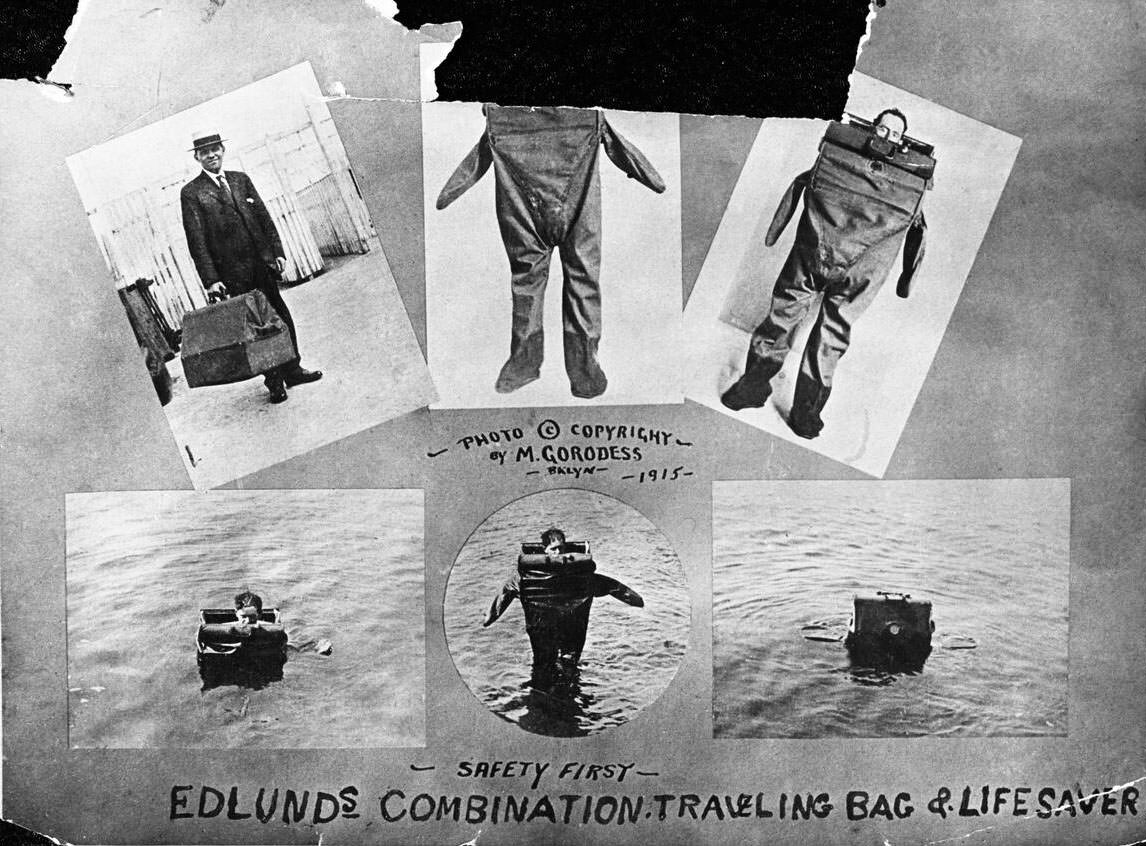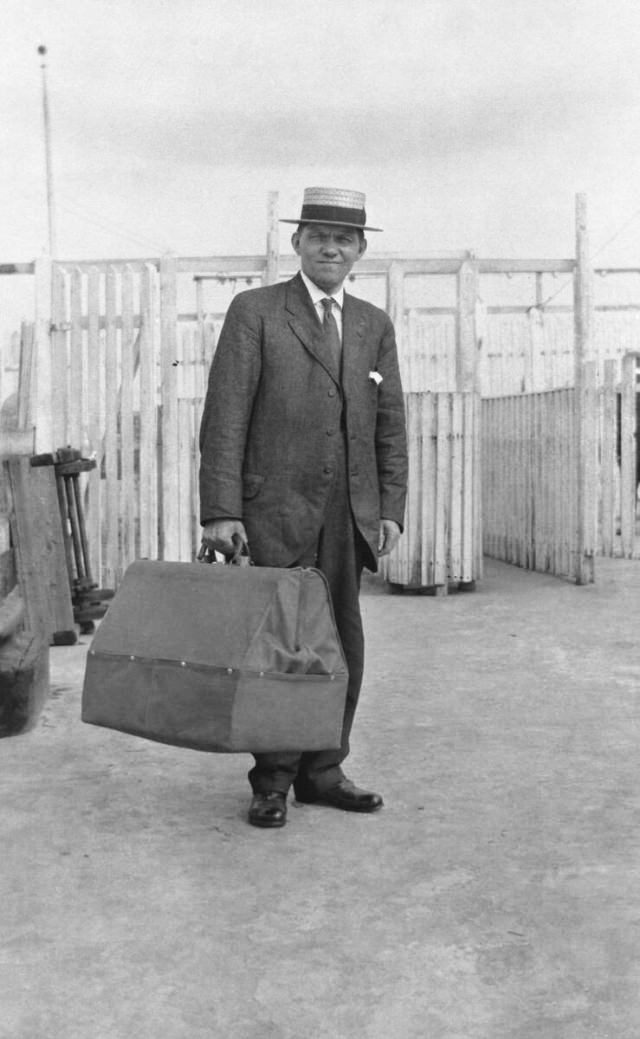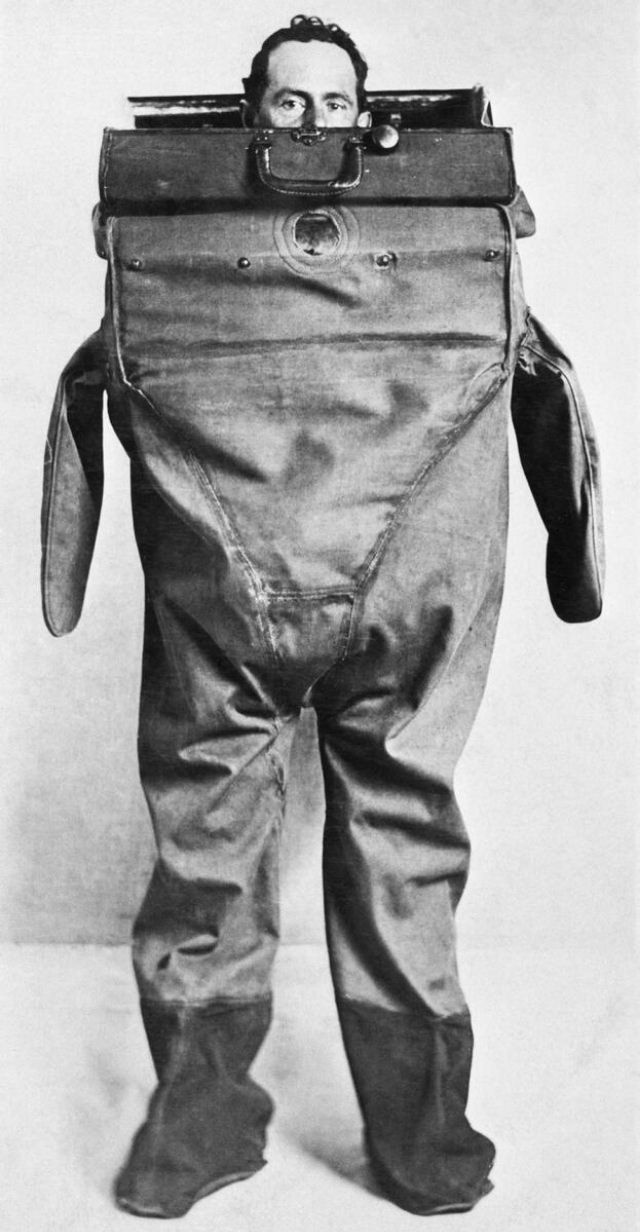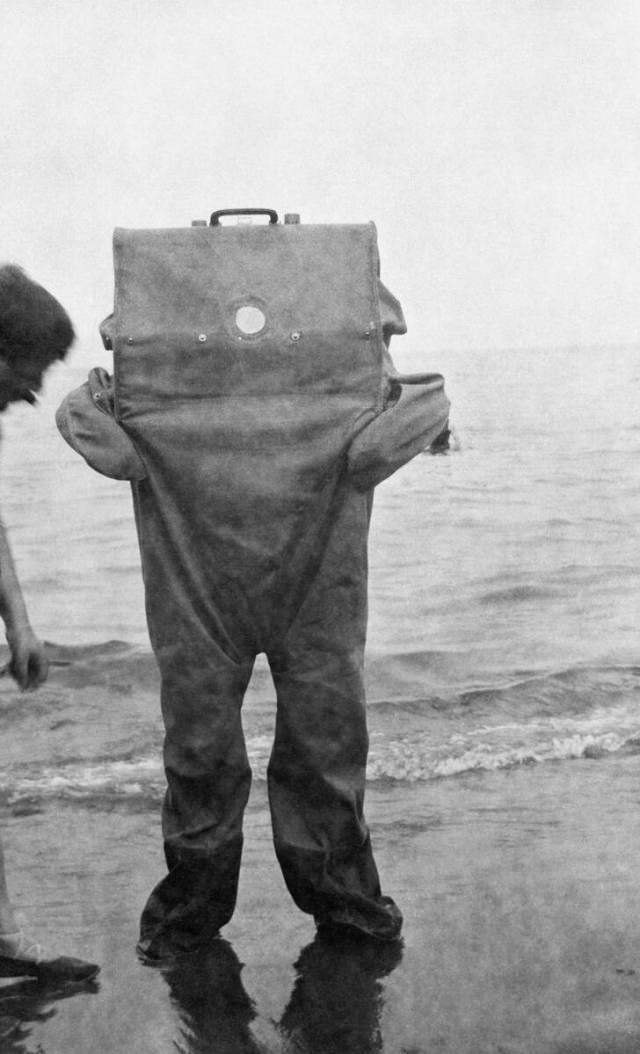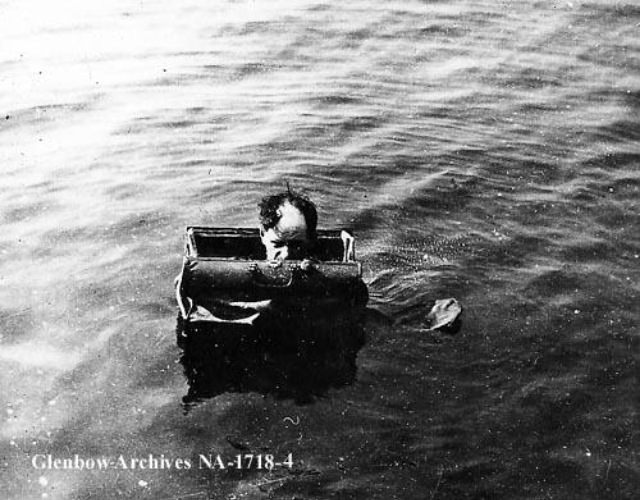In the early 20th century, one man envisioned a world where everyone had their personal lifeboat, in the form of a suitcase. The man was John Edlund, a former sailor turned inventor, who, after surviving three shipwrecks, felt the need to provide safety to every passenger traveling the high seas.
John Edlund, originally from Norway, settled on the Canadian prairies in Claresholm, Alberta. Despite being miles away from any significant body of water, he was deeply affected by the 1912 Titanic disaster. Edlund’s outrage at the appalling lack of lifeboats for the doomed vessel led him to devise a unique solution: a life-preserving valise.
Edlund’s innovative design consisted of a full-body life preserver suit that could be neatly packed into a suitcase or valise. In the event of an emergency, passengers could open the valise, don the waterproof suit, and calmly walk along the ship’s deck to the water. The suit’s arm and leg flippers facilitated mobility, while the valise part of the apparatus protected the wearer’s head and upper body.
The suit was more than just a floating device. It included airlocks, enabling the user to stay dry and safe for up to four days. The preserver even boasted a small glass looking-hole for navigation and had room for essential provisions. When not in emergency use, the valise could be used for conventional packing, just like any other suitcase.
Edlund’s invention, ahead of its time, was highlighted in numerous newspapers and magazines across North America. There was considerable interest in the life-preserving valise during the First World War, given its potential for saving lives in maritime emergencies.
However, Edlund’s life-preserving valise did not achieve commercial success. Despite being offered a modest fee for his design, he chose to market it himself – unfortunately, without much success. His invention, though revolutionary, never took off in the way he had envisioned.


